06 Jan2021
By Susan Baker

This article is part of a series that originally appeared on the Education First Blog and is reprinted with permission.
Here in the College of Education at California State University Sacramento, we’ve been in the business of preparing teachers for 73 years, and in the past few years have prepared approximately 380 teachers annually across 12 certification areas. A central aspect of our offerings across these programs is a focus on helping candidates understand the relationship between societal inequities and student learning, with special focus on race, class, gender, and other socially constructed categories. We knew that these understandings were key to our candidates’ success in developing equitable, healthy relationships with their K-12 students.
But we found that this wasn’t enough. The mentor teachers who support our candidates in their clinical experiences started asking us faculty some tough questions about whether these aspects of our preparation really prepared our candidates to be ready to teach all children on day one. Was the preparation coherent and clear for candidates? Were candidates provided opportunities to practice the ways in which teachers cultivate equitable, culturally responsive anti-racist classroom environments?
06 Jan2021
By Michael Rose
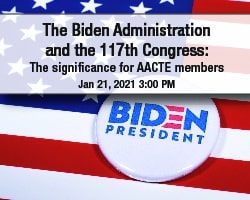 Not many of us will shed a tear now that 2020 is behind us. The outbreak of COVID-19 resulted in a long and difficult year for students, families, schools, and colleges. Virtually, no part of our nation (or the world) was untouched. But with the start of 2021, we hope that the worst is behind us.
Not many of us will shed a tear now that 2020 is behind us. The outbreak of COVID-19 resulted in a long and difficult year for students, families, schools, and colleges. Virtually, no part of our nation (or the world) was untouched. But with the start of 2021, we hope that the worst is behind us.
The country will see a new congress sworn in on January 3 and, on January 20, Joseph R. Biden and Kamala Harris will be sworn in as the 46th president and vice-president of the United States of America.
Despite 2020 being in our rear-view mirror, the challenges we face due to COVID-19, the related economic collapse, and a politically divided country remain.
05 Jan2021
By Marvin Lynn
T his article originally appeared in Diverse Issues in Higher Education and is reprinted with permission.
his article originally appeared in Diverse Issues in Higher Education and is reprinted with permission.
As we embark upon a new year, it is important for education leaders to reflect on 2020 in order to assess what we got right, determine what went wrong, and then set a course for a more equitable education for all students in 2021.
The COVID-19 pandemic illuminated the multiple and complex inequalities that exist in our schools. In remote learning environments, students who were already disengaged from school, in some cases, became more detached and harder to reach, particularly the population of historically underserved and marginalized PK-12 students. Undergraduate programs in higher education experienced similar issues, as some students felt more marginalized and isolated due to not being in classrooms. The pandemic has taught us that educator preparation programs must instill in teacher candidates the importance of building relationships. If educators don’t develop healthy and sound relationships based upon mutual trust with their students, then it’s harder to teach—and definitely harder to reach—those students for whom school is not a positive experience.
05 Jan2021
By JTE Insider
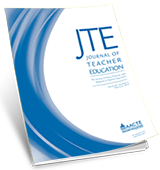 Check out a recent JTE Insider podcast by the Journal of Teacher Education (JTE) editorial team. This blog is available to the public, and AACTE members have free access to the articles in the JTE online archives—just log in with your AACTE profile.
Check out a recent JTE Insider podcast by the Journal of Teacher Education (JTE) editorial team. This blog is available to the public, and AACTE members have free access to the articles in the JTE online archives—just log in with your AACTE profile.
This podcast interview features insights from the article “Creativity Promotion in an Excellence Program for Preservice Teacher Candidates” by Yael Kimhi and Leiky Geronik. The article was published in the November/December issue of the Journal of Teacher Education.
05 Jan2021
By Prepared To Teach
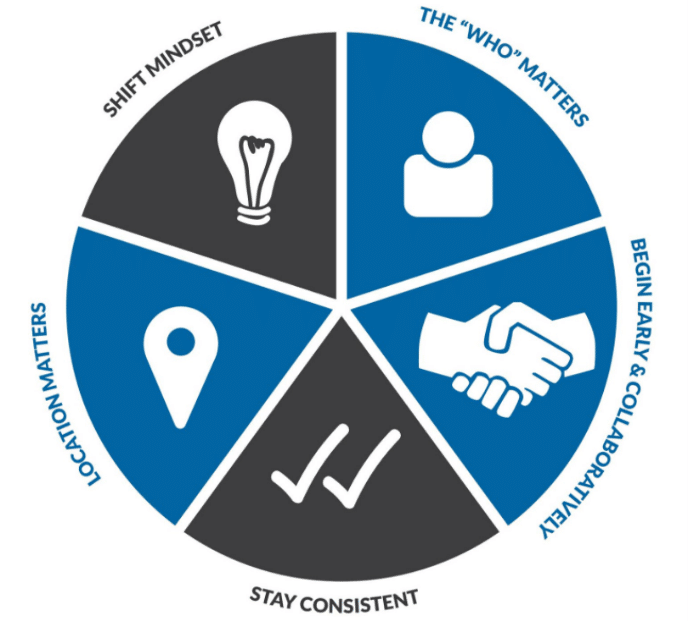 What are the ingredients P-12 and institutions of higher education partners need to co-design a teacher residency? Western Washington University and Ferndale School District offer some lessons about how to meet both university & P-12 needs in this new report.
What are the ingredients P-12 and institutions of higher education partners need to co-design a teacher residency? Western Washington University and Ferndale School District offer some lessons about how to meet both university & P-12 needs in this new report.
Co-Designing Teacher Residencies: Sharing leadership, finding new opportunities focuses on how a group of university teacher educators at Western Washington University’s Elementary Education program and district administrators at Ferndale School District reconsidered their approach to teacher preparation. Instead of viewing preparation as primarily the University’s responsibility, the partnership placed the needs of P-12 students and the district at the forefront of considerations, while also honoring a parallel goal of enhancing the preparation experience.
05 Jan2021
By Melissa Oliver
This article is part of a series that originally appeared on the Education First Blog and is reprinted with permission.
 Think back to when you were a student sitting in a math classroom. Did you believe you could excel at math? If you didn’t, you aren’t alone. Shequana Wright-Chung, adjunct assistant professor of early childhood mathematics education at Brooklyn College at the City University of New York, shares that it’s a common belief and one that is often impacted by racial identity and racial bias—our own internalized biases and those of our educators. In this blog, learn more about how Wright-Chung develops culturally-sensitive math educators who are mindful and aware of racial biases and how they impact students’ mathematical learning. It starts with…a story.
Think back to when you were a student sitting in a math classroom. Did you believe you could excel at math? If you didn’t, you aren’t alone. Shequana Wright-Chung, adjunct assistant professor of early childhood mathematics education at Brooklyn College at the City University of New York, shares that it’s a common belief and one that is often impacted by racial identity and racial bias—our own internalized biases and those of our educators. In this blog, learn more about how Wright-Chung develops culturally-sensitive math educators who are mindful and aware of racial biases and how they impact students’ mathematical learning. It starts with…a story.
“I always thought I was not great at math,” Shequana Wright-Chung recalls a teacher candidate sharing last semester. It’s not an uncommon belief. Thinking back to the good ole days of a weekend brunch with six of your closest friends, how many jokes would come up at the table about not being a math person when the bill arrives? The truth is, there is no Math nation with Math citizenry. Math people aren’t born, they’re developed.
So, what impact does it have on students’ ability to excel at mathematics when their teachers are math averse? How do educators’ mindsets about content and student (assumed innate) ability to learn shape academic achievement? How does an educator’s racial identity and what they’ve internalized about their racial group in relation to math dictate the expectations they develop about same-race-students’ math abilities? How does what educators believe about other racial groups’ math aptitude impact the way they teach?
05 Jan2021
By Jacqueline E. King, Ph.D. and Jane E. West

Administrators and faculty of educator preparation programs (EPPs) have long been concerned about the challenge of attracting students to a profession where college affordability and financial compensation discourages them from pursuing teaching as a career. However, due to the pandemic, the concern is growing. Our nation’s educational system is at a critical crossroad where teacher shortages and budget cuts are colliding. On one hand we have teachers who are retiring early amid health concerns or being furloughed, and on the other hand, we have EPPs with shrinking programs and enrollment. This is the perfect storm many education leaders have feared, and the impact will be acute if we do not find ways to encourage diverse and talented students to enter a career in education.
To start, we need to address the financial challenges that future educators face, including a high student loan debt to earnings ratio and lack of awareness of scholarships and loan forgiveness at the federal, state, and university levels. Recently, the American Association of Colleges for Teacher Education (AACTE) released the Issue Brief, How Do Education Students Pay for College?, based upon data from the 2015-16 National Postsecondary Student Aid Study (NPSAS). According to the data, by the time education students graduate, 76% of them have taken student loans, and the average amount they borrow is nearly $28,000.
05 Jan2021
By AACTE
AACTE has launched a new initiative to examine state-level teacher certification assessment scores, with the goal to improve equitable and inclusive practices for promoting a diverse educator workforce. The initiative, funded by the Bill & Melinda Gates Foundation, will enable AACTE to develop national guidelines and recommendations for state education leaders in establishing criteria for equitable evaluations for teacher candidates seeking state licensure.
“Left uninterrogated, standardized tests of any sort tend to spur inequalities, rather than resolve them,” said Leslie T. Fenwick, AACTE dean in residence. “If entrance exams are decimating the ranks of prospective pre-service teachers of color, we have a moral and practical obligation to correct the outsized impact of these tests on the future of our profession.”
04 Jan2021
By Linda Minor

Were you busy wrapping things up at the end of 2020 and you forgot to register for the 2021 Annual Meeting? Don’t worry. There is still time to register at the early bird rate. AACTE has extended the deadline until Monday, January 11 at midnight.
Don’t miss out on registering for the virtual conference at this discounted rate. AACTE 2021, to be held February 24-26, offers attendees three days of concurrent sessions, keynote speakers, professional service providers and other exhibitors in the Conference Community Center, as well as networking opportunities at various receptions.
Access the Online Event Planner to view and plan for the day-to-day schedule of events.

For more conference details, visit www.aacte.org, follow us on Twitter and Facebook, and join the conversation using #AACTE21.
Come experience the reimagined AACTE Annual Meeting – One community. One purpose. One voice.
04 Jan2021
By Lynn M. Gangone
 “Education is simply the soul of a society as it passes from one generation to another.”
“Education is simply the soul of a society as it passes from one generation to another.”
– G.K. Chesterton
Happy New Year!
The year 2020 was a tumultuous one for educators. The COVID-19 pandemic has brought educator preparation to a dangerous crossroad, with teachers, principals, school counselors, and other essential education professionals experiencing a debilitating spate of closures and faculty layoffs. The public education workforce lost more than 600,000 jobs last year, with university-based educator preparation programs also encountering reduced enrollment and program closures. Our members have experienced declines in undergraduate enrollment, budget cuts, and reduced staffing. Rising demand for new teachers and shrinking capacity in colleges and universities threatens the high-quality education our populace needs to ensure a rich quality of life and global competitiveness for generations. But as we begin the new year, we look toward 2021 with a renewed sense of hope and optimism for the future.
18 Dec2020
By AACTE
(December 18, 2020, Washington, D.C.) The American Association of Colleges for Teacher Education (AACTE) President and CEO Lynn M. Gangone issued the following statement today regarding the new Secretary of Education under the Biden-Harris administration:
“AACTE has happily submitted recommendations and participated in discussions with the Biden Transition Team regarding what is needed to rebuild and revolutionize education. We have highlighted the critical need for a COVID-19 relief bill, provided critical suggestions for the first 100-day executive actions, and contributed ideas for long term strategies and investments.
For the last four years, our nation has suffered from misguided and inadequate leadership at the U.S. Department of Education. This Administration’s failures have taken our nation’s PK-12 schools and system of higher education down a destructive path. While school districts struggle amidst a shortage of educators, with more than 600,000 jobs lost, so too do colleges of education with lowered program enrollment, program closures and faculty layoffs. The educator pipeline is at risk, and the future of our public education system is in jeopardy.
18 Dec2020
By Kathleen M. DaBoll-Lavoie, Ph.D.
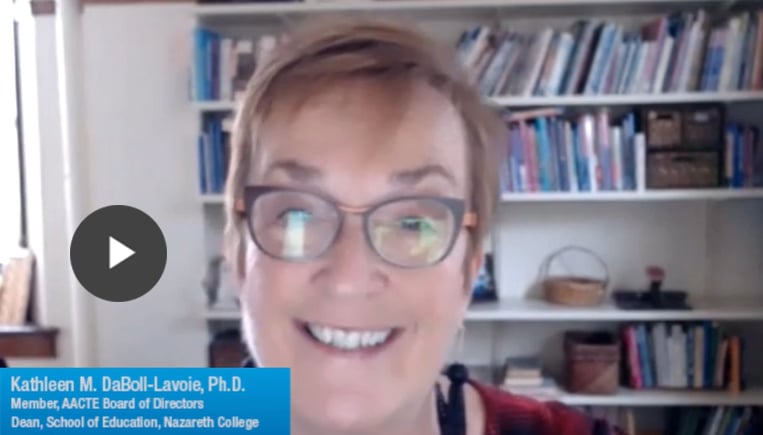 On behalf of the AACTE Board of Directors, I would like to thank you and your colleagues at American Association of Colleges for Teacher Education for your support of AACTE. This year has been a challenge for all of us, and I take comfort in the community of peers I have at AACTE.
On behalf of the AACTE Board of Directors, I would like to thank you and your colleagues at American Association of Colleges for Teacher Education for your support of AACTE. This year has been a challenge for all of us, and I take comfort in the community of peers I have at AACTE.
I have found the resources AACTE membership provides invaluable, especially now. Specifically, the resources below have helped me navigate the impacts of the pandemic at the state and local level:
AACTE understands the unusual circumstances of 2020 have greatly impacted you and your institution. As such, AACTE is piloting a state chapter incentive program, whereby AACTE is extending a 25% discount on 2021 national dues to state chapter member institutions. This discount is offered to both financially aid and encourage state institutions to join and retain membership at the national level. Additionally, if 75% of state chapter members renew their AACTE membership in full for 2021 (at the discounted rate), AACTE will extend the 25% discount into 2022 membership dues as well. Please contact your state chapter president or membership@aacte.org for additional information on the program.
To renew your AACTE membership:
- Submit Your Renewal via Credit Card: Visit your AACTE Profile to submit payment online.
- Submit Your Renewal via Check: Make payable to “AACTE” and mail to AACTE, PO Box 825490, Philadelphia, PA 19182-5490.
On behalf of the Board of Directors, the Advisory Council of State Representatives (ACSR), and the National Office team, thank you for your dedication to the profession during these challenging times.
If any questions arise, please do not hesitate to contact the membership team: Meghan Grenda at mgrenda@aacte.org or Gloriatine Jones at gjones@aacte.org.
Sincerely,
Kathleen M. DaBoll-Lavoie, Ph.D.
Dean, School of Education, Nazareth College
Member, AACTE Board of Directors
Chair, Advisory Council of State Representatives
17 Dec2020
By Lynn M. Gangone
The AACTE National Office Staff and I wish you peace, joy and health this holiday season, and are grateful for you being a part of the AACTE community. In this video, I reflect upon the great work we accomplished together in 2020 and look ahead to the new year.
Please take a moment to view the
video message above and discover how you can stay involved with AACTE this holiday season.
Happy Holidays from all of us at AACTE, and best wishes for peace and prosperity in 2021.
Lynn M. Gangone, Ed.D.
President and CEO
American Association of Colleges for Teacher Education
17 Dec2020
By Jerrica Thurman

AACTE has extended registration deadlines for its virtual 2021 Annual Meeting, February 24-26. Enjoy the gift of time this holiday season to secure discounted rates for the premier educator preparation conference in the nation. The early bird registration deadline is now January 11.
Reduced Registration Rates
|
|
Early Bird
(on or before
January 11, 2020)
|
Advance Registration
(on or before
February 1, 2021)
|
Late Registration
(after February 1, 2021)
|
|
Member Rate
|
$349
|
$389
|
$419
|
|
Non Member Rate
|
$489
|
$539
|
$589
|
|
Emerging Leader
|
$179
|
$179
|
$179
|
|
Student or Holmes Scholar
|
$69
|
$89
|
$109
|
17 Dec2020
By Lynn M. Gangone
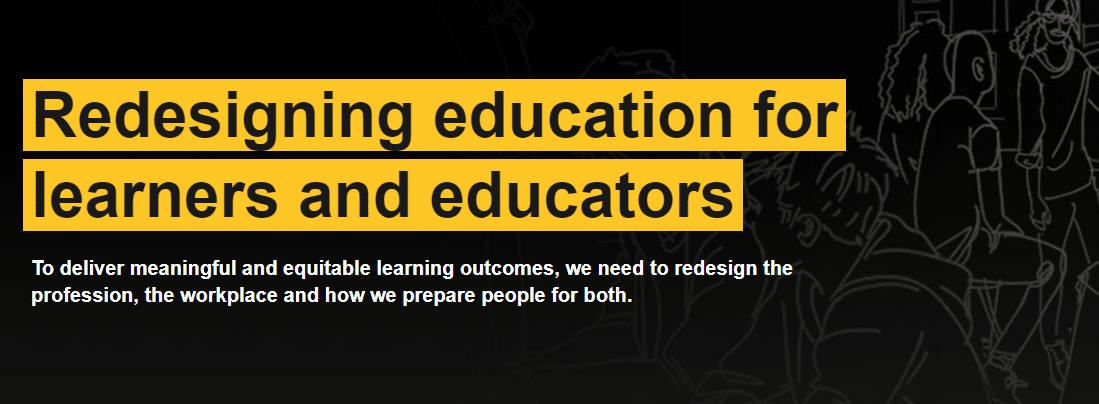 AACTE’s Strategic Plan holds forth a vision to Revolutionize education for all learners. A bold statement for sure, and our strategic priorities of diversity, equity, and inclusion; high quality preparation; and inquiry and innovation exist to move us toward our vision.
AACTE’s Strategic Plan holds forth a vision to Revolutionize education for all learners. A bold statement for sure, and our strategic priorities of diversity, equity, and inclusion; high quality preparation; and inquiry and innovation exist to move us toward our vision.
As AACTE surveys the work of its member institutions looking for revolutionary ideas and practices, I have been intrigued by the work of member institution Arizona State University’s Mary Lou Fulton Teachers College (MLFTC) and its Next Education Workforce initiative. I invite our college of education deans to join me in adding to the conversation and the work of this initiative at a virtual convening next month.
We have talked for years about declining enrollments, the perception of lack of innovation, and the myriad challenges facing teacher education and colleges of education—as well as the challenges of our K-12 partners in staffing and retaining a classroom-ready teacher workforce. What better time to consider different approaches to our collective work? MLFTC, in partnership with its local school districts, is implementing what it calls the Next Education Workforce models in its service area.



 Not many of us will shed a tear now that 2020 is behind us. The outbreak of COVID-19 resulted in a long and difficult year for students, families, schools, and colleges. Virtually, no part of our nation (or the world) was untouched. But with the start of 2021, we hope that the worst is behind us.
Not many of us will shed a tear now that 2020 is behind us. The outbreak of COVID-19 resulted in a long and difficult year for students, families, schools, and colleges. Virtually, no part of our nation (or the world) was untouched. But with the start of 2021, we hope that the worst is behind us.  his article originally appeared in
his article originally appeared in  Check out a recent JTE Insider podcast by the Journal of Teacher Education (JTE) editorial team. This blog is available to the public, and AACTE members have free access to the articles in the JTE online archives—just
Check out a recent JTE Insider podcast by the Journal of Teacher Education (JTE) editorial team. This blog is available to the public, and AACTE members have free access to the articles in the JTE online archives—just  What are the ingredients P-12 and institutions of higher education partners need to co-design a teacher residency? Western Washington University and Ferndale School District offer some lessons about how to meet both university & P-12 needs in this
What are the ingredients P-12 and institutions of higher education partners need to co-design a teacher residency? Western Washington University and Ferndale School District offer some lessons about how to meet both university & P-12 needs in this  Think back to when you were a student sitting in a math classroom. Did you believe you could excel at math? If you didn’t, you aren’t alone. Shequana Wright-Chung, adjunct assistant professor of early childhood mathematics education at Brooklyn College at the City University of New York, shares that it’s a common belief and one that is often impacted by racial identity and racial bias—our own internalized biases and those of our educators. In this blog, learn more about how Wright-Chung develops culturally-sensitive math educators who are mindful and aware of racial biases and how they impact students’ mathematical learning. It starts with…a story.
Think back to when you were a student sitting in a math classroom. Did you believe you could excel at math? If you didn’t, you aren’t alone. Shequana Wright-Chung, adjunct assistant professor of early childhood mathematics education at Brooklyn College at the City University of New York, shares that it’s a common belief and one that is often impacted by racial identity and racial bias—our own internalized biases and those of our educators. In this blog, learn more about how Wright-Chung develops culturally-sensitive math educators who are mindful and aware of racial biases and how they impact students’ mathematical learning. It starts with…a story. 


 “Education is simply the soul of a society as it passes from one generation to another.”
“Education is simply the soul of a society as it passes from one generation to another.”
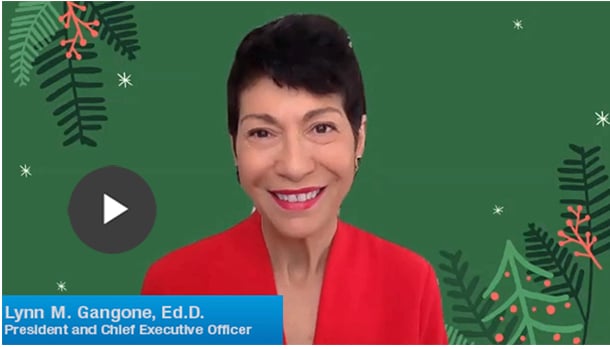


 AACTE’s Strategic Plan holds forth a vision to Revolutionize education for all learners. A bold statement for sure, and our strategic priorities of diversity, equity, and inclusion; high quality preparation; and inquiry and innovation exist to move us toward our vision.
AACTE’s Strategic Plan holds forth a vision to Revolutionize education for all learners. A bold statement for sure, and our strategic priorities of diversity, equity, and inclusion; high quality preparation; and inquiry and innovation exist to move us toward our vision.